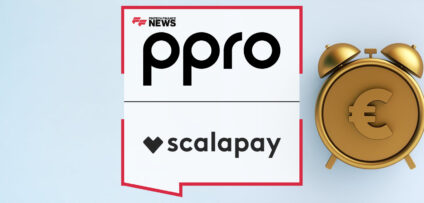Breaking News

Two-thirds of Businesses Lack Defined Spend Policies Despite Growth Potential
A robust spend culture is key to unlocking business potential, with 61% of CFOs highlighting its importance for growth, yet few have struck the right balance between autonomy and control, new research from Payhawk reveals.
The research, conducted by independent research house Coleman Parkes, surveyed 1,000 finance leaders in large organisations across the UK, France, Germany, the Netherlands, Bulgaria, and Spain. It sheds light on the growing gap between awareness and action when it comes to creating an efficient spend culture.
While 41% of businesses are actively defining their spend culture—a clear indicator of its strategic importance—only 31% report having a formalised policy in place. This disconnect highlights the tension between desired autonomy and control, with CFOs citing fraud concerns (51%) and trust issues (44%) as barriers to implementing effective frameworks. The findings underline the need for robust spend culture frameworks that empower teams without compromising security.
What is spend culture?
Spend culture refers to the set of attitudes, behaviours and practices that shape how an organisation approaches spending. In practice, this can look like flexibility within a framework. For example, some companies empower employees to use corporate cards within set budgets and limits, a model followed by 28% of respondents, promoting autonomy while retaining oversight. Others adopt clear, enforceable limits with few exceptions, used by 18% of organisations, reflecting a highly controlled spend culture.
Spend culture drives business success
Although 85% of finance leaders understand the importance of spend culture, a significant majority still lack clear policies to guide financial decision-making. CFOs cite several further barriers to defining and implementing spend culture within their organisations, including:
- A lack of suitable tools to support real-time visibility and control over spending.
- Inefficient approval workflows leading to delays and data inaccuracies.
- Resistance to change within organisational structures.
Just 4% of CFOs have no plans to develop a spend culture in the near future – 31% have a defined framework, 41% are in the process, and 25% intend to make this a focus in the next 12 months. Among those that have established policies, 49% reported improved financial controls, as well as improvement in profitability (41%) and an increase in accountability (38%).
Many CFOs are turning to technology, such as comprehensive spend management solutions, to gain real-time insights, save time with automated approval processes, and improve visibility and accountability across teams to give employees autonomy and build trust while reducing fraud. By leveraging advanced tools alongside well-defined spend culture policies, organisations can bridge operational gaps, unlock financial potential, save time, and drive sustainable, long-term growth.
“The challenge isn’t just defining spending policies on paper – it’s bringing them to life through automation and real-time controls,” said Hristo Borisov, CEO of Payhawk. “When properly executed through technology, spend culture becomes an enabler of growth rather than a barrier to efficiency.”
Learn how Payhawk can help you bring your spend culture to life here.
Discover how you too can save time through Payhawk’s interactive installation, launching at Waterloo Station on January 21st. Don’t miss this innovative showcase as it travels to Victoria, London Bridge, and Kings Cross stations.
People In This Post
Companies In This Post
- How Freedom Holding Corp Turned Technology Foundations into a Scalable Fintech Ecosystem | Freedom Holding Corp | The Fintech Show #161 Read more
- ComplyAdvantage Fintea Chats: Fighting Financial Crime in an Age of Faster, Smarter Criminals Read more
- ING: Why “Autonomous AI” Is Misunderstood Read more
- Money Sent to Romance Scammers Jumps 37 Percent in a Year, as TSB Warns Public of Victims Trapped in Relationships Spanning Months Read more
- Sixfold Raises US$30 Million Series B to Build the AI Underwriter Read more















